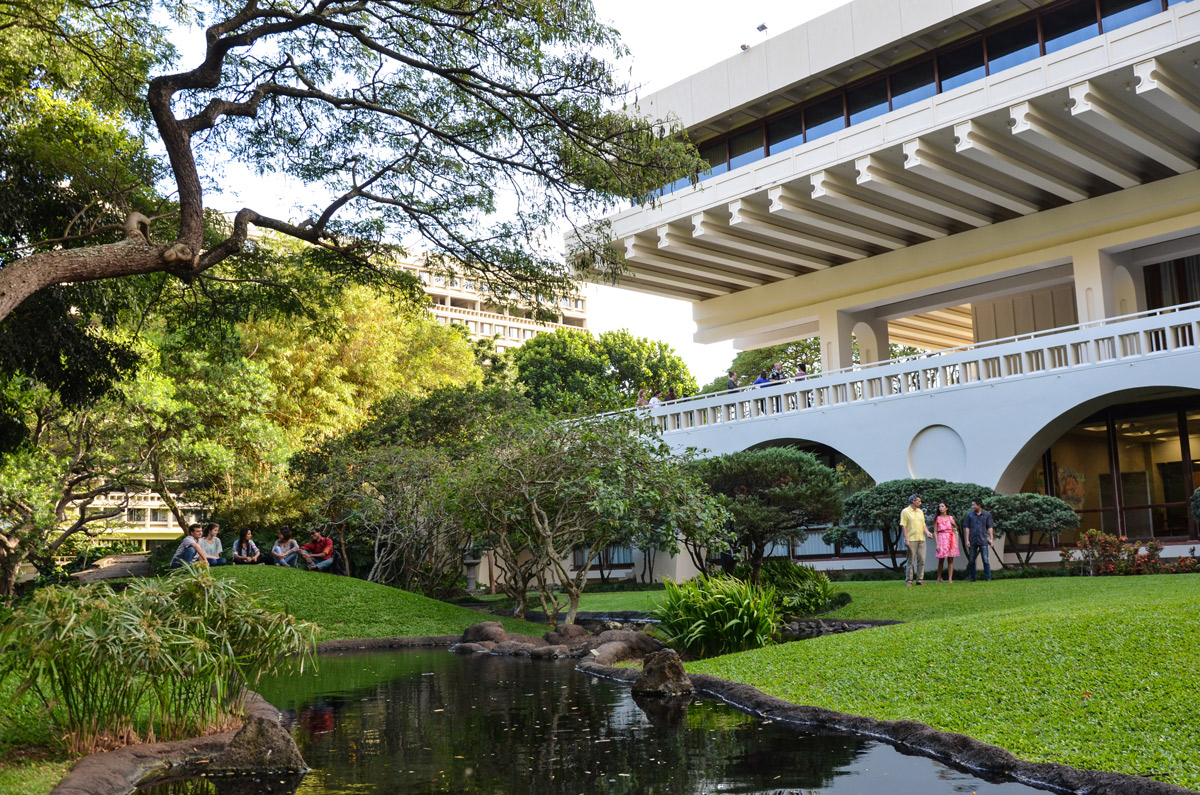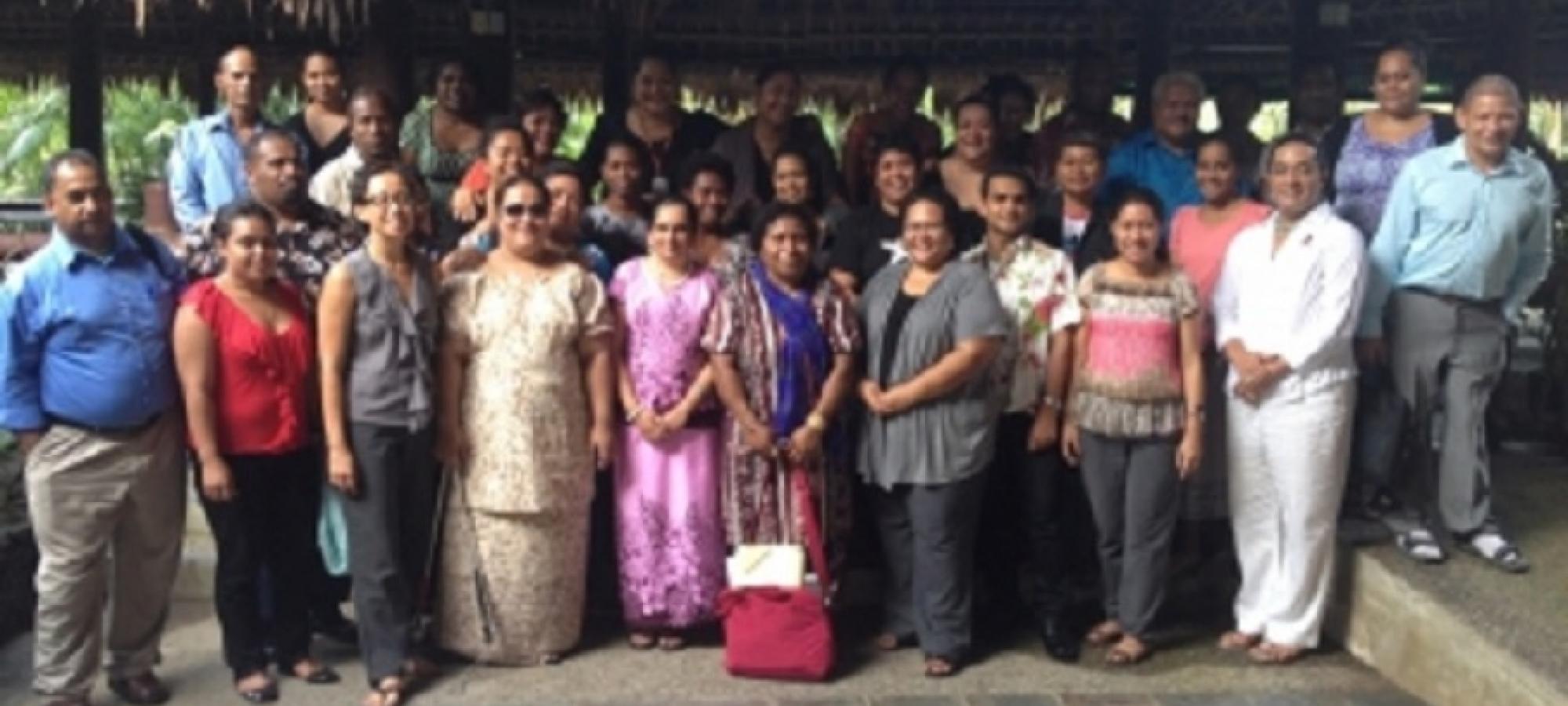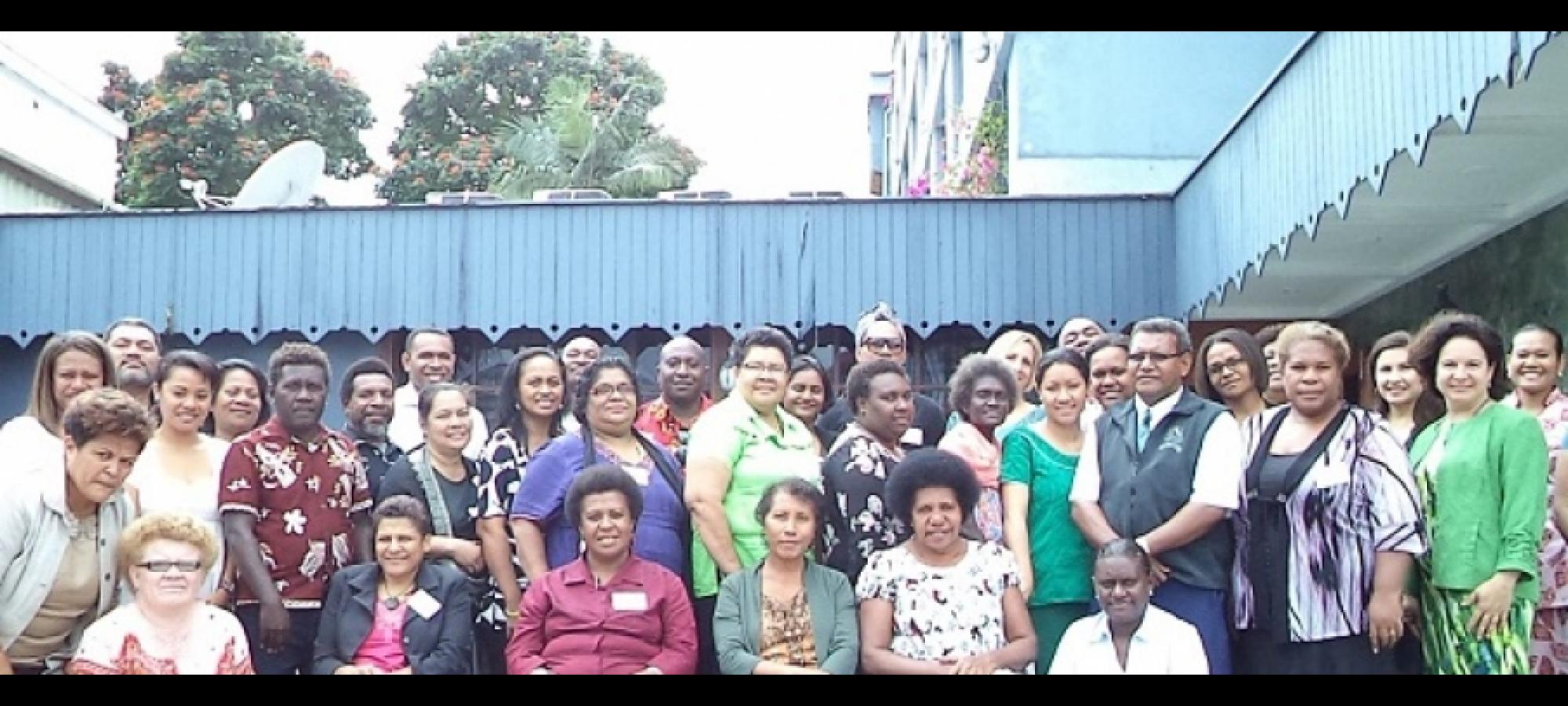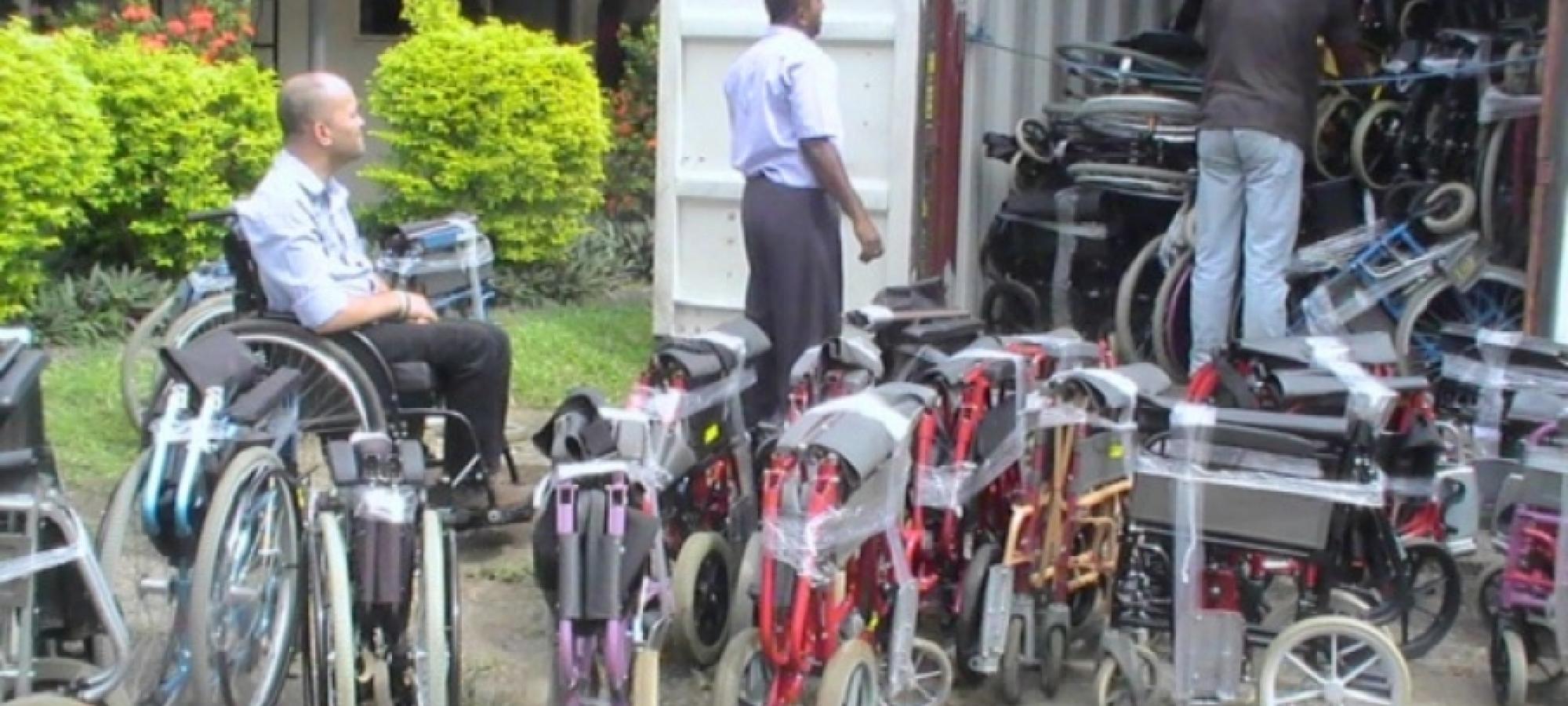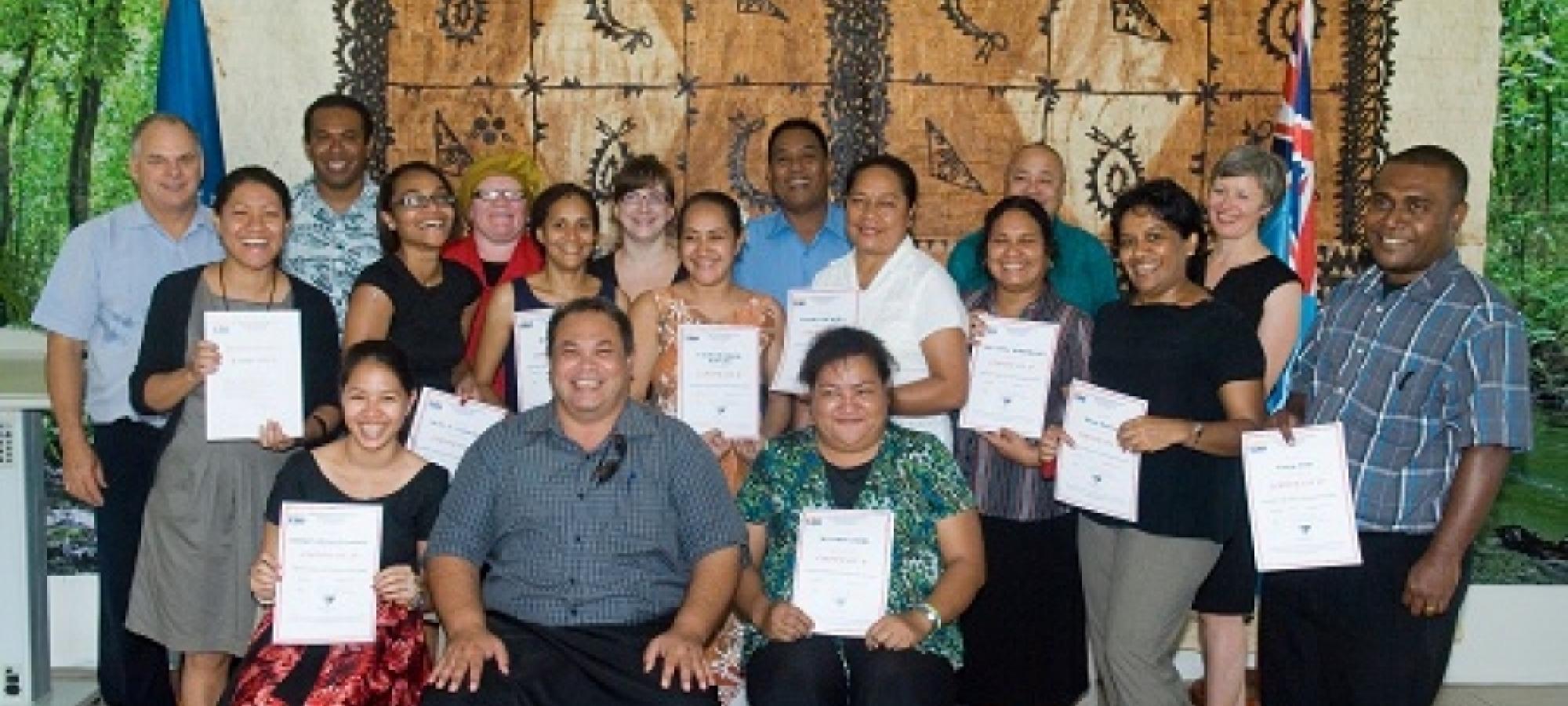USAID Supports first-ever braille voter guide for blind and vision impaired in Fiji
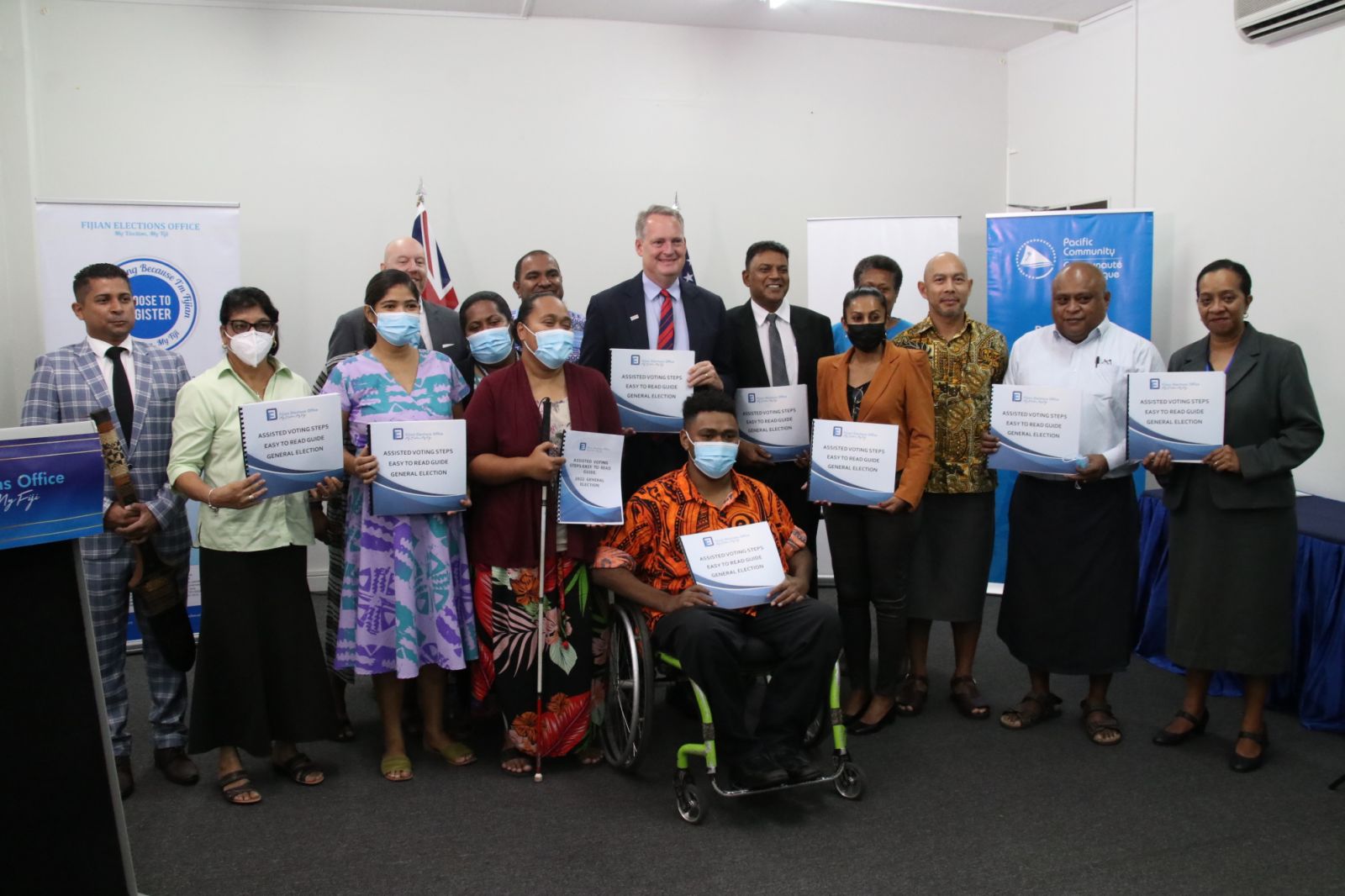
6 July, 2022, SUVA - To ensure information is accessible for all persons with disabilities during the upcoming General Elections in Fiji, U.S. Charge d’Affaires Tony Greubel today handed over the first ever braille Assisted Voting Steps Easy to Read Guide to the Chairperson of the Fiji Electoral Commission Mr Mukesh Nand.
The United States Agency for International Development (USAID) through its Promoting Just, Engaged, Civic-minded and Transparent (PROJECT) Governance program implemented by The Pacific Community (SPC) produced this braille Assisted Voting Steps Easy to Read Guide. They printed 2,100 copies so that every polling venue in Fiji will have a copy for persons who are blind or vision impaired.
SPC worked closely with the International Federation of Electoral Systems (IFES), the Elections Disability Access Working Group (EDAWG), and the Fiji Elections Office (FEO) to make elections information and associated materials for Persons with Disabilities more accessible, including making information available in braille for all individuals who are blind and vision impaired. This is the first time ever that Fiji elections information materials are available in this format. The content of the braille publication is a collaboration between SPC, International Federation of Electoral Systems (IFES), FEO and EDAWG. The production of the 2100 copies of the Braille Guide was carried out by the Fiji Society for the Blind.
Charge d’Affaires Greubel said, “We are proud of the work that has been done to develop this tool and the continued engagement with the Fiji Elections Office and Elections Disability Accessibility Working Group because we firmly believe that responsive governance is built when institutions and policies are accessible, accountable, and responsive to all their constituents, especially disadvantaged groups. To advance these beliefs, the U.S. government, through the USAID and with support from SPC, will continue to strengthen democratic governance in the Pacific and advance a shared vision of a resilient, free and open Blue Pacific”.
Chairperson of the Fiji Electoral Commission Mukesh Nand while receiving the braille guides said Today’s event is yet another step towards building electoral processes in Fiji that are inclusive and promote greater access and participation.
“Since 2014, the Fijian Elections Office has taken direct initiatives to work with Disabled Persons Organizations and other institutions that have expertise in this area,” he added.
“This morning, we received 2100 copies of ‘Assisted voting steps -the easy to read guide for the General Election’ in Braille and another such guide that is designed to enable persons with disabilities to participate in the election on their own. These materials will allow them to understand the electoral process better and participate effectively.
Seinimilia Seru from the United Blind Persons and a representative of EDAWG believes the translation of voter materials into braille and other formats is a significant step taken by FEO and other donor partners to ensure inclusivity of all persons in the upcoming general elections.
“The impact of getting all voter materials into accessible formats will go a long way in ensuring participation of persons with disabilities in political life,” she said.
Miles Young, Director of the Human Rights and Social Development Division of SPC said the contents of the Assistive Voting Steps Easy to Read Guide will also be available in other alternative accessible formats, such as sign language, audio, video, braille, and easy-to-read print versions as well as translated into both iTaukei and Hindi languages.
The Assistive Voting Steps Easy to Read Guide has valuable election information for voters, including reasonable accommodations available to persons with disabilities at polling venues, such as being able to bring a person of their choice and being able to vote within a 300-meter radius of their selected polling venue.
-ENDS-
About PROJECT Governance
PROJECT Governance is a $19.8 million, five-year partnership between USAID and the Pacific Community (SPC). A key focus area for PROJECT Governance activities is to promote the fair and equal application of laws and the integrity of electoral and political processes that represent the will and interests of the people (just governance). Another key objective of PROJECT Governance is to promote responsive governance. Responsive governance exists when government institutions and policies are accessible, accountable, and responsive to the people they serve, especially disadvantaged groups.
For more information contact:
Ms Kalpana Nizarat, Communications and Visibility Officer for the Human Rights and Social Development Division of the Pacific Community
Email: [email protected] Phone: +679 9077550
Ms Neelam Prasad, Manager Communications, Fiji Elections Office
Email: [email protected]





